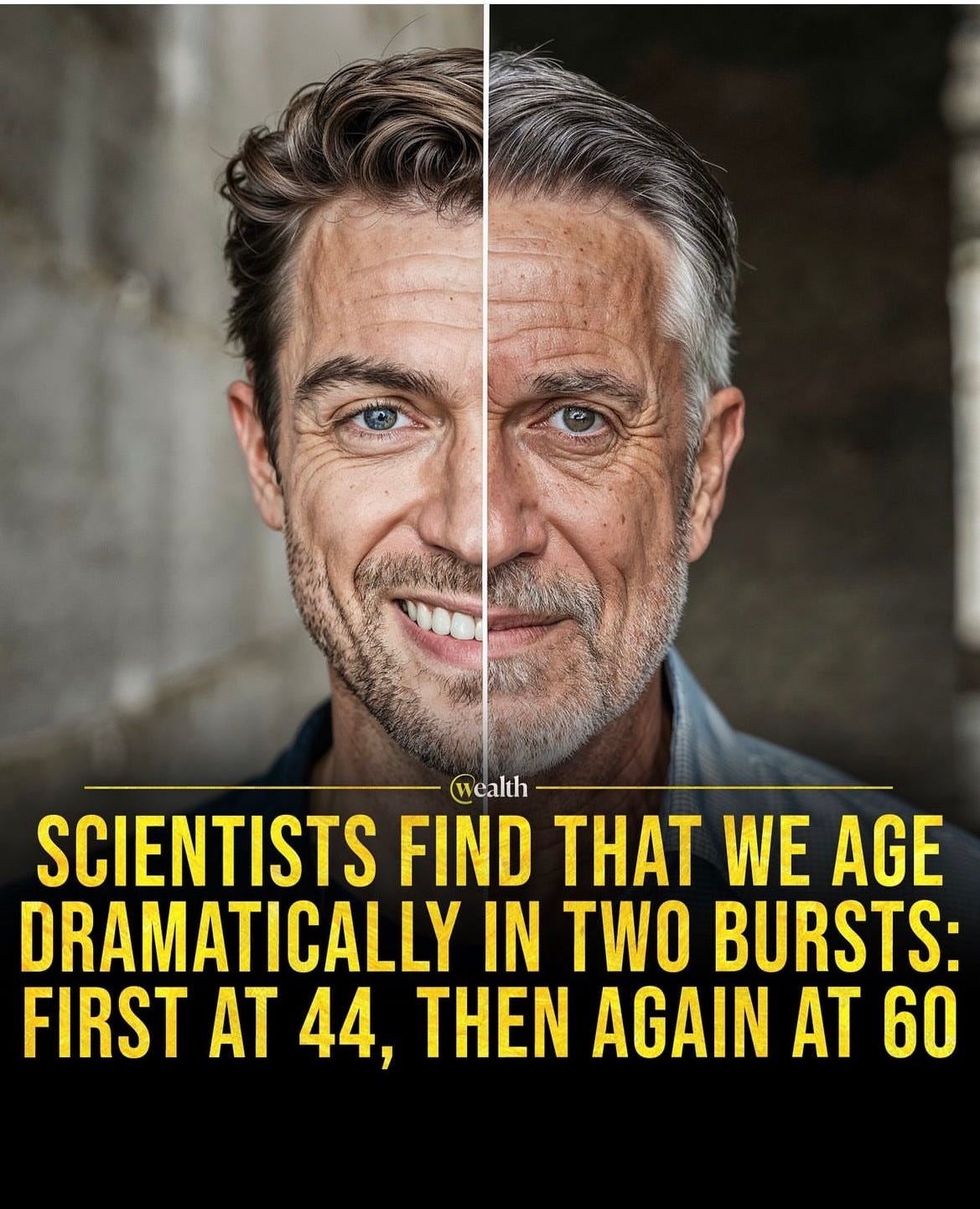I was hit with the above Instagram meme the other day. I was irked that my phone is accurately aware of my age and seems to enjoy mocking me for it, but this did make me pause.
When I turned 40, an older friend acted as though I was crossing some significant aging threshold, and she warned me that I would encounter new trials and pains daily from then on. Seeing this meme made me wonder: does age 40, or thereabout, start the slow, steady decline of aging or are there periods, say at age 44 like me, where we experience bursts of extreme aging followed by a leveling-out period?
Society has long considered 40 the de facto mark of old age, marking the milestone with Over the Hill paraphernalia. My father’s 40th birthday is one of my core childhood memories. We decorated the house in black balloons, hung black streamers, and showered him with presents like Ben-Gay cream and heating pads.
If you think about it, the “burst theory” could make sense. We go through puberty in early life, after all, during which we go through an increase in hormones, and women experience menopause, when we are dealt a large drop in hormones.
As much as I wanted the meme to be fake news—and believe I was not currently in one of these rapid aging periods— it turns out this is new research by scientists at Stanford Medicine. Published in the journal Nature Aging, scientists studied blood, nose, mouth swabs, and other biological samples from participants over several years. The scientists noticed that many molecules, including proteins, microorganisms that live in our bodies, and the cells that structure DNA, to name a few, did not increase or decrease at a steady rate, but instead had periods of distinct increase or decrease. The most noticeable changes happen around age 44 and 60.
Skeptical that females entering menopause were skewing these numbers, the researchers even grouped their participants into males and females, but they noticed the males were experiencing the same level of molecular changes as the females.
I guess we can’t blame all our middle age ailments on menopause anymore.
Some of the major molecular changes scientists noticed in participants in their 40s were metabolism rates concerning alcohol, caffeine, and lipids. I think everyone in their 40s can attest to their metabolism feeling like it falls off a cliff, but the drop in metabolism for alcohol and caffeine is particularly interesting. Research would suggest we may want to pare back on these vices during this period, though scientists note this could be a chicken or egg scenario. Many middle age participants could be consuming more alcohol or caffeine given stress levels during these years.
Scientists also noticed significant changes in cardiovascular health, the immune system, and skin and musculoskeletal health. Many of my own friends have noticed almost overnight changes in our skin in our mid 40s. It feels dryer, duller, less elastic, and even pigmentation seems to change abruptly. Our skin, on the outside, is something I can visually watch change. The fact that these overnight changes are happening on the inside to my heart health, my muscles, and my immune system is not surprising, but is harder for me to visualize.
For those turning 60, the outlook was even more dire. Researchers saw notable loss in immune regulation, kidney function, and carbohydrate metabolism, with the same systems affected at 40 hit again around 60. The big takeaway here is that we need to pay more attention to our diet and exercise as we enter these rapid periods of aging. Scientists advise those close to 60 should drink more water to assist in kidney function and cut back on carbohydrates.
Given this new-to-me information at 44, I can only hope I am about to enter a leveling out period where I will exist blissfully until I turn 60.


